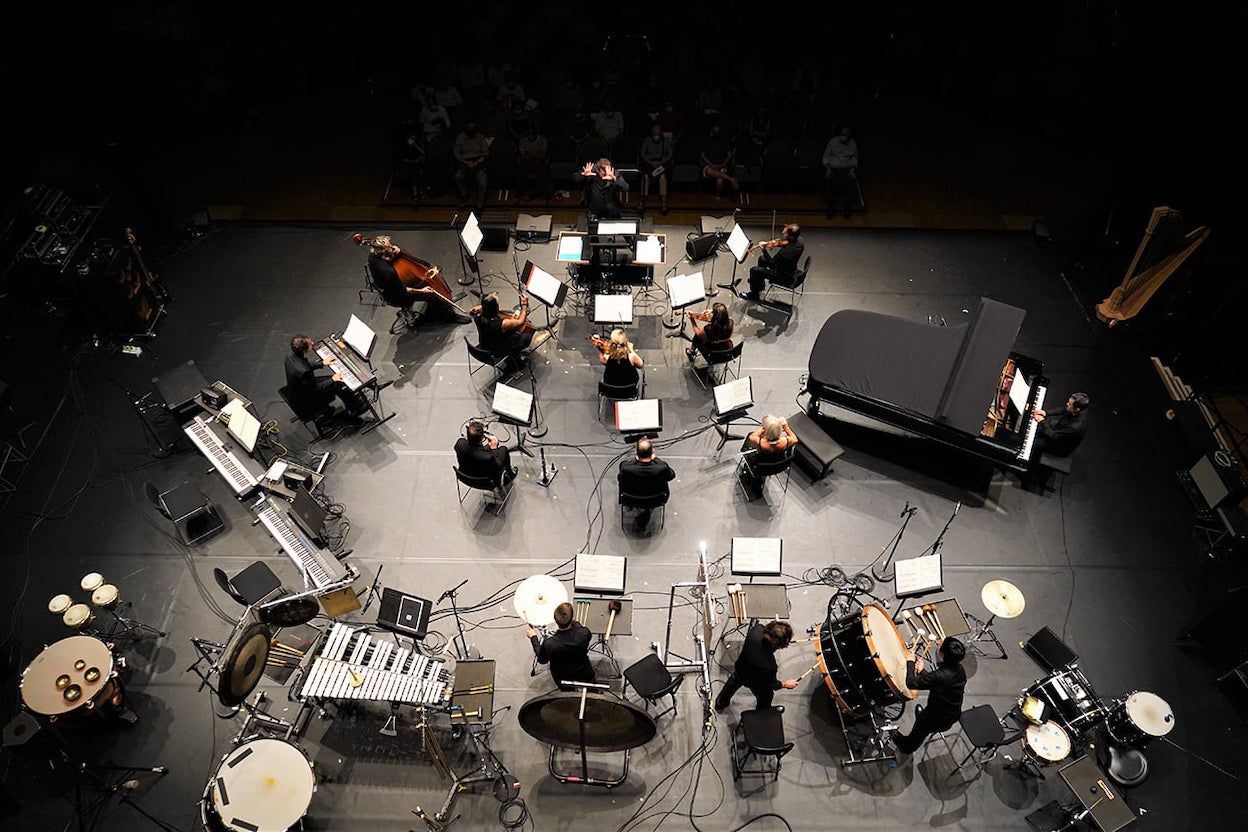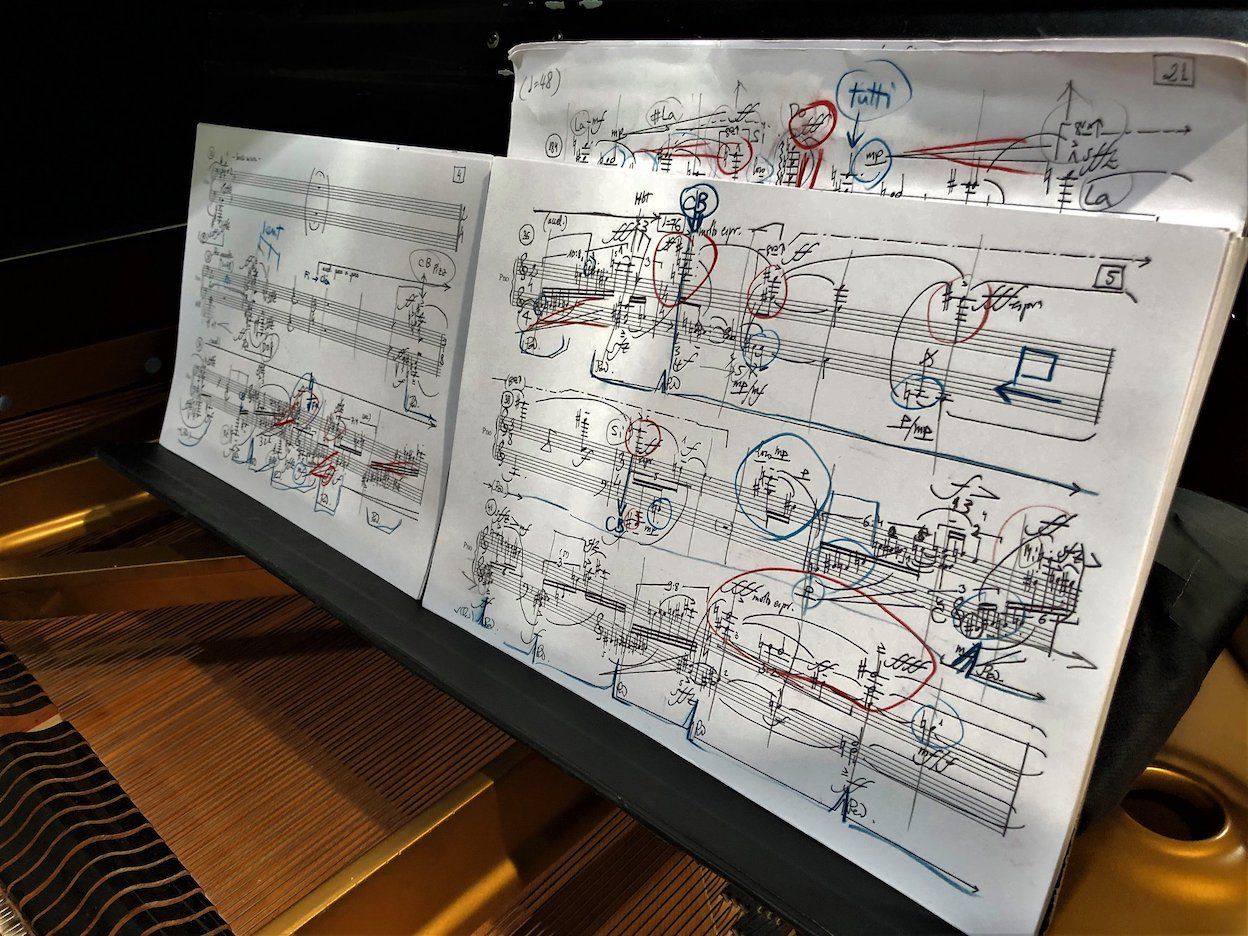
In recent years I’ve become increasingly interested in contemporary music, for lack of a better word. I enjoyed reading "The Rest Is Noise" by Alex Ross, which is essentially a collection of stories about “Modern” music from the first half, or rather the first three-quarters, of the twentieth century, and I was eager to read more about late twentieth and early twenty-first century music, the music that I'm now listening to a lot. Since "Music After the Fall" by Tim Rutherford-Johnson was the top listed book on amazon I ordered a copy.
Rutherford-Johnson has the book begin in 1989, the year the Berlin Wall came down. This choice is rather arbitrary, as Rutherford-Johnson also admits, and the book doesn’t really make clear that in music there is also a before and after 1989, or perhaps I missed it. Not that it really matters. The book has to start somewhere and Rutherford-Johnson also discusses composers who can be said to belong to a previous age, such as Stockhausen, Reich and Nono.
There is a wealth of information in "Music After the Fall" and I enjoyed reading it. There is, however, surprisingly little about music as such and a lot about the social, economic, political and geographic context in which music is created and to which composers respond. I should add that this is also what Rutherford-Johnson describes as his aim in the introduction, which is to look at the whole ecosystem of new music. While I found this interesting to read it also left me wanting, because the context is not different from that in which theatre directors, choreographers and indeed artists in general operate and with which I’m all too familiar.
Perhaps what I would like to read is obvious to anyone with a passing knowledge of classical or contemporary music. Perhaps I should take a music composition class to learn what I would like to know.

The book contains a couple of sample pages from musical scores of which I would have liked more. Consider the picture above. What does this mean? How does one play this? Is there a right and a wrong way to play it? And who is to judge? And why does a composer choose to compose music this way? I have the feeling that I’m missing something here.
Rutherford-Johnson does well to place contemporary music in a wider cultural context and also discusses artists who primarily work in other disciplines but either cross over into music or use music in their work. Ryoji Ikeda, for example, is both a visual and a sound artist. I know him mainly for his video installations, which come with a soundtrack, but he has also released a number of recordings, both as a solo artist and together with Dumb Type.
I'd like to add one critical note. Tim Rutherford-Johnson is a London-based music journalist and critic, as it says on the book’s back cover, and that shows. I was surprised that the Ensemble Intercontemporain only gets mentioned twice and the Ensemble Modern and the Klangforum Wien only once, even though they are among today's premier contemporary music ensembles and also frequently commission emerging composers to create new work. The Asko/Schönberg Ensemble doesn’t get mentioned at all. There is no mention either of the Ernst von Siemens Musikpreis, one of the most important awards in contemporary music and a good starting point if you want to discover new music, or various important international festivals, such as the Donaueschinger Musiktage, arguably the oldest and most important new music festival, or the Holland Festival, which in 2019 staged a three day marathon performance of a large portion of Stockhausen’s "LICHT" cycle. I know that this was after the book was published and I only mention it to underline the fact that the Holland Festival is still of some cultural significance. There is, however, a lot about the British music scene in "Music After the Fall" and the book would be better titled something like “Music Before Brexit. Modern Composition and Culture in the UK”.
"Music After the Fall" comes with an extensive recommended listening list, which I found very helpful and which I’ve systematically explored with the help of YouTube.
Despite the above reservations I can highly recommend "Music After the Fall" if you'd like to read more about the contemporary music scene.
Update:
I have since read “Modern Music and After” by Paul Griffiths, which is the book that I'd been looking to read.